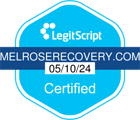Signs of Drug Addiction
Addiction is a chronic societal problem that affects people regardless of wealth or background. Anyone can become addicted to substances, and it’s not a sign of moral weakness. Addiction is just as much a disease as cancer, and it’s just as harmful to a person’s life. But the stigma often stops many people from getting help for drug addiction.
Addictive substances can flood the brain with 50 to 100 times the amount of dopamine (the chemical in the brain responsible for pleasure and learning) that a person might receive from an activity that was good for their body. Many addictive substances, such as alcohol and cannabis, have become socially acceptable to the point where addiction can fester without detection. By the time someone wants to quit the substance and fight their drug addiction, they may find themselves unable to without help or medical assistance.
It’s important to look out for signs of addiction in yourself and loved ones. There’s no shame in asking for help or entering inpatient addiction treatment if you need help recovering from drug addiction. Entering treatment is taking responsibility for yourself and your addiction, so you can learn healthy coping mechanisms and build a life of sobriety that you can sustain. If someone in your life is looking to heal from their addiction, it’s most important to help them as they go through the process.
Signs of general drug addiction (also known as substance abuse disorder) include the following:
- Red eyes
- Drastic changes in energy, such as mania or sluggishness
- Drastic weight loss or gain in a short period of time
- Irregular sleep patterns (insomnia or periods of long sleep)
- Small or dilated pupils
- Odors on clothing, especially chemical odors
- Marks on the skin, such as puncture holes or bruising
- Poor personal hygiene
- Decreased physical coordination
The exact signs of addiction may differ depending on the substance to which the person is addicted. But prioritizing obtaining and using the drug of choice (above personal well-being) can result in physical signs of addiction regardless of the substance.
Before physical signs of addiction, the people in an addicted person’s life often notice the psychological signs of addiction first. Signs can vary according to the substance and severity of addiction. But some signs are consistent with general substance abuse disorder, regardless of the drug they are addicted to:
- Avoiding personal or professional responsibilities
- Social isolation
- Trouble with the law, such as DUIs or petty theft
- Obsessive, paranoid, or fearful thoughts
- Financial trouble or frequently needing money
- Repeated instances of lying
- Less involvement with friends and family
- Decreased performance at school or work
- Loss of interest in previously loved activities; general apathy
An individual may display some or all of these traits when suffering from drug addiction.
It’s important to remember that addiction is a disease, and to suffer from it is not a sign that someone is a bad person. People suffering from addiction need help and support to overcome it and start living a life of healthy coping mechanisms.


When Should You Get Help For Substance Use?
Do not attempt to quit your addiction cold turkey without the guidance of a medical professional. Several drugs, including alcohol and prescription pills, can have very painful or even fatal withdrawal symptoms. Depending on the substance, you may need to undergo detox treatment to safely remove the substance from your system.
These signs indicate that you may be undergoing addiction and need to seek out recovery treatment:
- Needing more of the substance over time to feel a desired effect
- Consuming more of the substance over time, and more of your consumption is done alone
- Inability to stop your substance use (even if you want to)
- Halting substance use leads to you experiencing withdrawal symptoms, such as anxiety or shaking hands
- Feeling the desire to use a substance to alter your mood
- Thinking that you “need” a substance to get through an event or circumstance
- Consuming substances even in dangerous situations, such as driving
- Hearing your friends and family say you should consider treatment
If you need help in your recovery from addiction, you’re not alone. There are many people and services available to help you learn how to live a sober lifestyle and learn relapse prevention to avoid turning to drugs to cope with stress.
Your Transformation Start Here
What Treatments are Available for Addiction?
Addiction treatments are typically completed in the following order:
- Detox: This is often the first stage of entering a full-time rehabilitation program. Individuals are monitored in a medical setting as their body purges the addictive substance. Medical professionals are on hand to address side effects as they come up and prevent lasting damage to the individual’s body.
- Inpatient treatment: This form of treatment involves the person suffering from addiction living full-time at an addiction treatment facility. There are limitations on what types of possessions they can bring with them, as well as limited communication with the outside world. Individuals sleep and eat at the facility, and dedicate themselves full-time to figuring out the root causes of their addiction and learning coping skills to help them cope with the stresses and problems of life without addictive substances.
- Outpatient treatment: While this form of treatment usually involves the person returning to their home of origin, there are still expectations of completing a treatment plan and attending therapy. Often, the person will still attend therapy appointments based in the facility or an affiliate. Treatment can range from less than ten hours a week to the equivalent of a second job.
- Intensive outpatient care: Some treatment centers offer a middle ground between inpatient and outpatient care. This is typically more structured than traditional outpatient care programs. This may be if the addicted individual has special medical needs, or needs more support than typical outpatient care but doesn’t need doily or hourly monitoring.
- Aftercare: The belief that a person is “cured” of drug addiction once they leave a rehab program is a myth. Aftercare includes supporting the individual person as they leave rehab and work to build up resilience and healthy coping mechanisms for the outside world. Not every person who enters rehab participates in aftercare programs, and aftercare programs may not be the same across different rehabilitation centers.
- Sober living: This final stage of recovery is all about the person re-integrating with their life after the intense reflection and self-work they’ve done throughout their time in treatment. Many individuals choose to spend some time at a sober living home before fully returning to their regular life, so as to practice the skills they’ve learned and focus on rebuilding relationships. They may appreciate the resources that this arrangement provides, as well as the opportunity to live in a setting where everyone understands their struggles and needs.
Recover From Drug Addiction at Melrose Recovery
It’s never too late to receive help for your addiction. Contact us today to start your journey towards recovery.

Taking the First Step Toward Addiction Recovery
At Melrose Recovery, our addiction specialists strive for the highest quality of care and are here to change lives for the better









